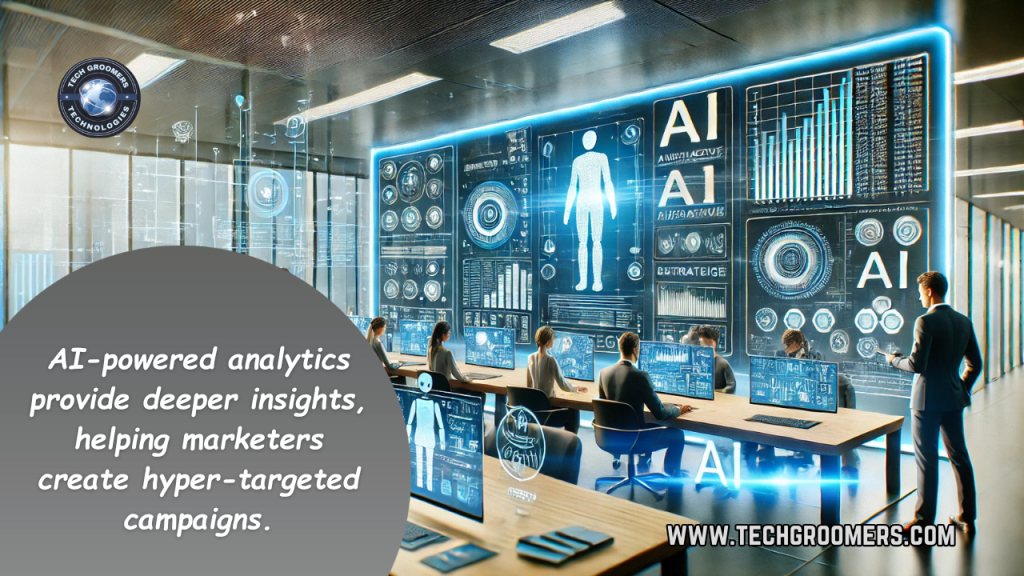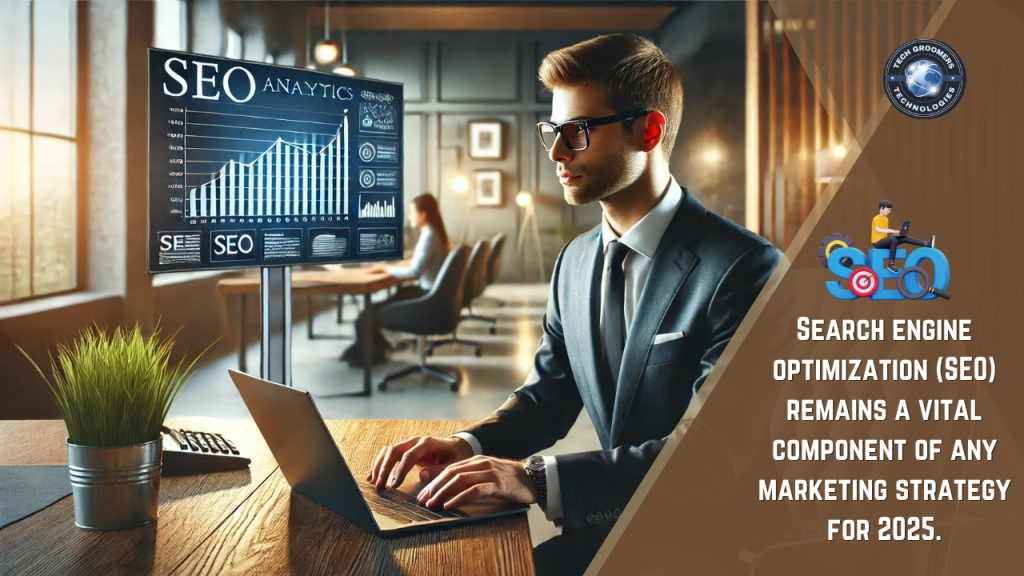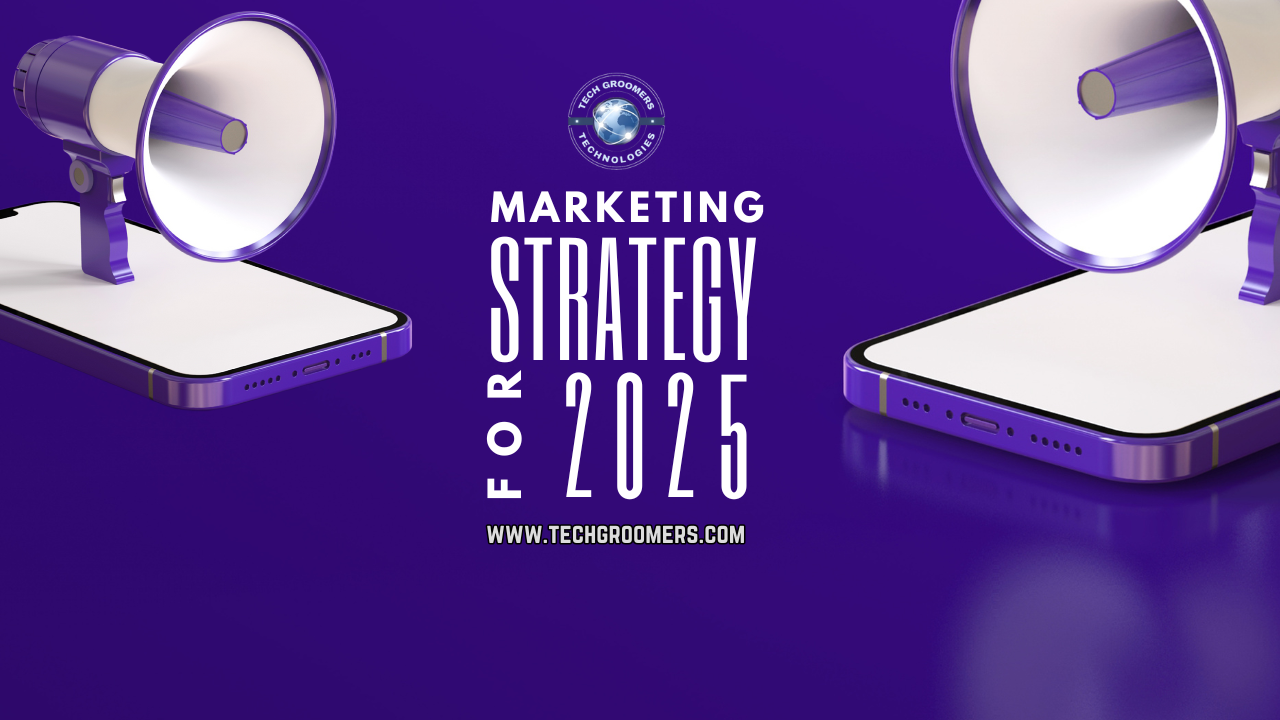Introduction
The digital landscape is evolving rapidly, making it essential for businesses to refine their marketing strategy to stay competitive. As consumer behavior shifts and technology advances, companies must embrace new tactics to maintain visibility and drive engagement. In this blog, we will explore the most effective ways to adapt your strategy for 2025 and beyond, ensuring sustainable growth in a dynamic market.
Understanding the Future of Marketing
With technological innovations, AI-powered solutions, and changing consumer expectations, businesses must align their marketing strategy with these evolving trends. Marketers need to adopt data-driven insights, prioritize personalization, and leverage automation to create impactful campaigns.
Key Trends Shaping Marketing Strategy in 2025
1. AI and Automation in Marketing

Artificial Intelligence (AI) and automation are revolutionizing the industry. From AI-driven chatbots to automated email marketing, businesses can enhance customer experience and streamline operations. AI-powered analytics provide deeper insights, helping marketers create hyper-targeted campaigns.
2. Personalized Customer Experience
Consumers expect a strategy that caters to their preferences. Personalization improves engagement rates and builds stronger customer relationships. Using customer data, businesses can deliver customized recommendations, emails, and content that align with individual preferences.
3. Voice Search Optimization
With the increasing adoption of smart speakers and voice assistants, optimizing content for voice search is essential. Implementing a method that focuses on conversational keywords and long-tail phrases can improve search rankings and drive more organic traffic.
4. Video Content Dominance
Video marketing continues to dominate digital platforms. Brands should incorporate short-form videos, live streaming, and interactive content to boost engagement. Platforms like YouTube, TikTok, and Instagram Reels are ideal for capturing audience attention.
5. Social Commerce and Influencer Engagement
Social commerce is redefining online shopping. Businesses must align their strategy with social media platforms like Instagram, Facebook, and TikTok, enabling direct purchases. Collaborating with influencers also enhances brand credibility and expands reach.
Steps to Adapt Your Marketing Strategy for 2025
1. Embrace Data-Driven Decision Making
Data analytics play a crucial role in optimizing a business strategy. Marketers should leverage AI-driven insights, customer behavior analytics, and predictive modeling to craft data-backed campaigns. Utilizing tools like Google Analytics and CRM software helps track campaign performance effectively.
2. Focus on Mobile-First Marketing
As mobile usage continues to rise, ensuring a mobile-friendly approach is essential. Websites must be responsive, ads should be optimized for mobile users, and content must be easily consumable on smaller screens. Mobile SEO, AMP (Accelerated Mobile Pages), and mobile app marketing are essential elements of a successful strategy.
3. Implement Omnichannel Marketing
Consumers interact with brands through multiple touchpoints. An effective strategy must be omnichannel, integrating social media, email, paid ads, and offline channels to provide a seamless customer experience. Businesses should ensure consistency in messaging across all platforms.
4. Leverage AI-Powered Chatbots
AI-driven chatbots enhance customer engagement by providing instant support. Implementing chatbots in your strategy can improve lead generation, boost customer satisfaction, and drive sales conversions. AI chatbots are particularly useful in handling FAQs and automating customer service tasks.
5. Prioritize Sustainability and Ethical Marketing
Modern consumers are becoming more conscious of ethical business practices. Companies should align their strategy with sustainability initiatives, showcasing eco-friendly products, responsible sourcing, and ethical business practices. Transparency and authenticity are key in building consumer trust.
6. Optimize for Featured Snippets and Zero-Click Searches
Google’s search algorithms prioritize featured snippets and zero-click searches. Structuring content with concise answers, bullet points, and FAQs increases the chances of appearing in featured snippets, enhancing visibility. Marketers should optimize their marketing strategy to target position-zero rankings on Google.
7. Experiment with Interactive Content
Interactive content, such as quizzes, polls, and augmented reality (AR) experiences, enhances audience engagement. Implementing interactive elements in your marketing strategy keeps users engaged for longer and increases conversions. AR-based shopping experiences are becoming a game-changer for eCommerce brands.
The Role of SEO in Future Marketing Strategy

Search engine optimization (SEO) remains a vital component of any marketing strategy. With Google’s evolving algorithms, businesses must focus on:
- Core Web Vitals: Ensuring fast-loading, mobile-friendly, and visually stable websites.
- High-Quality Content: Publishing valuable, well-researched, and engaging content that aligns with search intent.
- Link Building: Gaining high-authority backlinks to boost domain authority.
- Schema Markup: Implementing structured data to improve search engine visibility.
- Local SEO: Optimizing Google My Business profiles for location-based searches.
Measuring the Success of Your Marketing Strategy
Tracking and analyzing key performance indicators (KPIs) ensures your business approach is effective. Businesses should monitor:
- Conversion Rates: The percentage of users completing desired actions (purchases, sign-ups, etc.).
- Engagement Metrics: Click-through rates (CTR), bounce rates, and time spent on pages.
- Customer Acquisition Cost (CAC): The expense incurred to gain new customers.
- Return on Investment (ROI): The effectiveness of marketing efforts in generating revenue.
- Social Media Performance: Reach, impressions, and interactions on social platforms.
Conclusion
Adapting your marketing strategy for 2025 and beyond requires embracing emerging technologies, personalization, and data-driven decisions. Businesses must stay agile, continuously test new approaches, and refine their strategies to meet evolving consumer demands. By leveraging AI, voice search, video marketing, and omnichannel experiences, brands can create a powerful marketing strategy that ensures long-term success. Start implementing these strategies today and stay ahead in the competitive digital landscape.




Leave a Reply